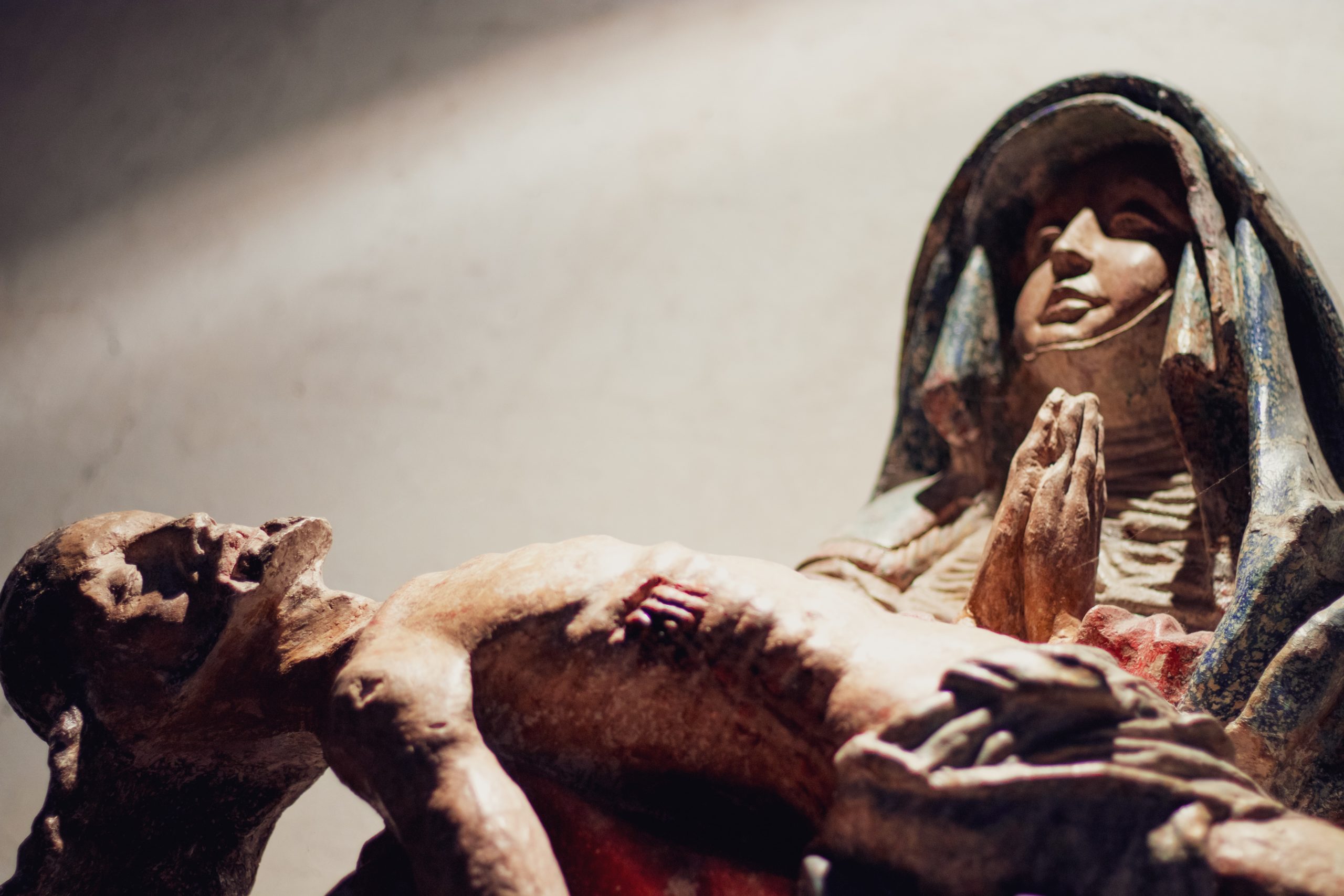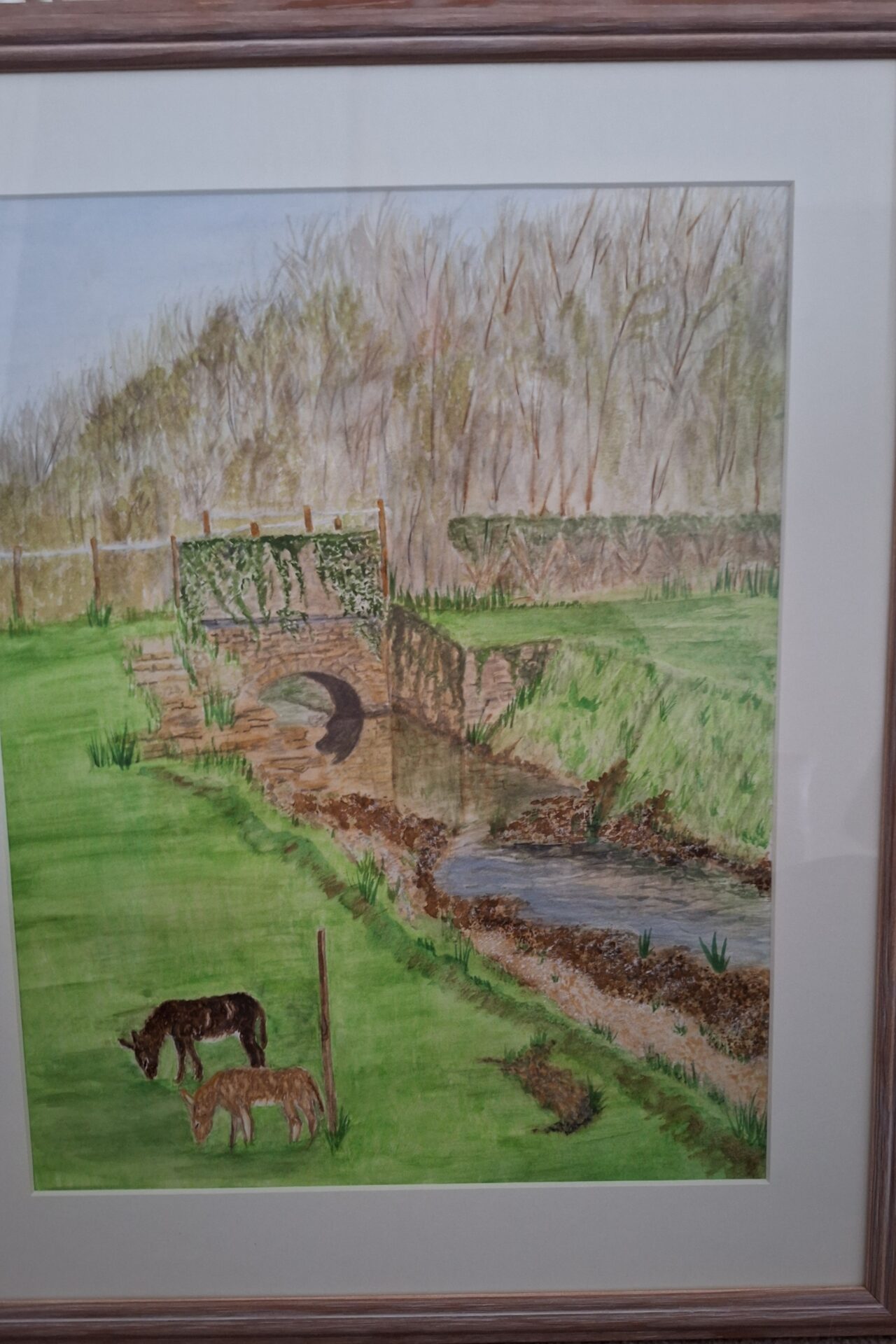A few more thoughts on Obedience. I’m not sure that they will amount to a coherent apologia, but we have to leave something for faith and hope to do, don’t we?
First of all, I think the distinction between Power and Authority is absolutely key. We are all wielders of power, from Stalin and Gaddafi to somebody who is ‘accidentally’ more powerful in an intimate relationship than his/her partner. By the same token we are all victims of, or – at best – affected by, power.
Power is always a function of the ego’s limited view of the world, trying to fulfil its limited agenda. This in turn always results in the objectification, to a greater or lesser degree, of human beings. The play of power frustrates the realisation of the person; the experience of authority generates personhood.
Where do we see power and authority most starkly juxtaposed? Jesus facing Pilate would be hard to beat. As we consider the authority embodied here by Jesus, we get further clues as to what this word (and the reality it stands for) expresses. The shared root is in ‘authentic’ and ‘author’. Jesus here (and anyone else, when they are being truly authentic) is showing his knowledge of who he truly is. He has authority to the extent that he is open to his source and his destination. The Father, who is the author and recipient of his being. Authority often ‘loses’ the battle with Power. The story of the Passion and of Calvary is a radical re-assessment of winning and losing. He wins the war (for us) ‘after losing every battle’.
Having ‘lost’ the (non)struggle with Power (how else can we describe ending up nailed to a cross?), Jesus continues to exercise authority: “Father, forgive them”. Not his own authority, mark. It is the Father who forgives.
So far so good – in a way it’s still apple-pie and motherhood, isn’t it? What good contemplative is going to argue with this? So let’s look at the worries about the Rule and how to live OUR lives ‘obediently’.
The Rule is full of archaic punishments, to the point of looking sadistic and scapegoating to a modern reader. This sometimes looks like Obedience at its crudest. It might just be that I’m the world’s worst Benedictine, but I deal with these passages in the same way that I deal with parts of the Bible (the Old Testament in particular) which would prescribe and proscribe all kinds of behaviours, nearly all of which are based on cleanliness rituals, obsessed with separation, exclusion and tribe-building. I just let them go. They are clearly anachronisms that don’t fit with our current state of development. As with the Gospel, it seems to me that we betray the text if we read it as a set of fixed instructions that we can read directly across into the question of how to live now. Equally, we betray the text if we read it like Sarabaites, parsing the Rule or Scripture to suit our particular belief or psycho-emotional preferences. So we read the Rule (and each other, and God’s will and everything else) with “the ear of the heart”.
You are probably familiar with the re-definition of Obedience (via ‘ob-audire’) as ‘listening’. Listening towards. As children we are told to ‘listen to’ our elders and betters. To do what they tell us to do. Once again ‘listen’ acquires unhelpful layers of meaning. Closing down, not opening up. But the listening that is cultivated in contemplation is nothing like this. It is ‘attending to’, paying attention. This, in itself, is an act of Love. And it’s not a separate ‘me’ straining to pick up the radio station “Will Of God”. As Mother Teresa said, when she listens to God, (s)he listens too. God listening to God. This act of Obedience (sitting in listening) is a simple exposure of ourselves in the faith that we will become more like ourselves, and that we don’t know what that is, until it is given.
OK, but does this still mean that we have to ‘do what the Abbot tells us?’ I don’t think so. Certainly not in a blind and unquestioning way. Perhaps our discipline will help us get better at knowing (without thinking about it) who is and who isn’t the Abbot, how much Abbot-ness is present in any given human exchange, group, situation… If we’re looking for a paradigm of creative disobedience, then look no further than Jesus. Nearly everything he is reported as doing is some form of creative transgression or frustrating of what was expected of him.
And I think that what Jesus says in the Farewell Discourses in John, fundamentally recalibrates how we should now experience our relationship to the source, to true authority. He tells us that we are servants no longer, but friends. A servant does not know what her master is about. This is as radical a recasting of the human lot as there can possibly be. And for me it is of a piece with the fundamental teaching of the Buddha that you must never, never take on some ‘truth’ about the world, just because somebody tells you it. Anything that is real must be tested through your own experience. We have to find everything out for ourselves!! On the face of it, this looks like a recipe for anarchic, individualist chaos. But for the Teacher Within, it would be. Jesus tells us that we will never be alone; the Spirit will be with us and will teach us everything we need to know. We will come to full consciousness. So we sit in silence and are obedient. Or, we might say, allow the Abbot within to grow.
Many questions, and many more to come. It’s difficult to resist Rilke when addressing these all-important (and therefore unanswerable) questions. He tells the young poet who he is addressing in the letter, that in the end we simply have to LIVE the answer to our questions. Rather than reach out in front of us and haul back the solution by the handful, we shall BECOME the answers.
My further thought about obedience is that, at its core, it is the fullest possible acceptance of everything that is present: joy, mystery, boredom, confusion, pain, suffering, death. The cross shows us this. As such, true obedience, like true anything else, is simply Love in action.
Your obedient servant (as they used to say, and I think we should start again),
Jim.







